Description
ABSTRACT
The Ratification of ILO Convention 190: A Glance at its Prospects and Challenges on the Litigation of Workplace Violence and Harassment in Nigeria
Victor Obinna Chukwuma* & Chidiogo Odunukwe**
Workplace violence and harassment is a global phenomenon affecting many countries today. Now, against the backdrop that workplace harassment constitutes a serious threat to the notion of decent work, the International Labour Organization in 2019 adopted a new Convention (ILO C190) to tackle the menace and ensure that it is not allowed to erode the world of work. The Convention constitutes a robust and comprehensive legal tool that can aid the curbing of workplace violence and harassment. Nigeria is one of the few countries to have ratified the ILO C190. This article considers the concept of workplace harassment and violence in Nigeria and the possible prospects and challenges of the Convention on the litigation of workplace harassment in Nigeria. This research finds that notwithstanding the issues and challenges facing the litigation of workplace harassment in Nigeria, such as stigmatization, cost of litigation, etc., the Convention will greatly strengthen the fight against gender-based violence at the workplace and also widen the spectrum of claims beyond the usual sexual harassment cases to other forms of harassment such as psychological, verbal and financial harassment claims. In conclusion, the article recommends that there is a need for employers and employees to get acquainted with the provisions of the Convention, especially with respect to their duties and rights thereunder. It is hoped that the NICN, as the bastion of labour justice, will also take full advantage of the Convention to continue promoting decent work in Nigeria.
Keywords: Workplace Harassment, NICN, ILO Convention 190, Litigation.
INTRODUCTION
Human dignity is one of the key components of the notion of decent work. Workplace harassment violates the victim’s dignity and erodes the notion of decent work.1 Notable forms of workplace harassment in Nigeria include verbal aggression, threats, playing of mind games, social isolation, insults or derogatory remarks, intimidation, neglecting one’s opinion, etc.2 Workplace harassment has negative effects not only on the employee and the employer but also on the economy of our dear country. In this connection, therefore, it is apposite to analyze the concept of workplace harassment and violence in Nigeria and how the ratification of the ILO Convention 190 by the Federal
*LL.B, BL, LL.M (Unilag).
** LL.B, LL.M (Soton).
- Chioma Agomo, Nigerian Employment and Labour Relations Law and Practice (Concept Publications Limited 2018) 6.
- See Tolulope O Afolaranmi Zuwaira I Hassan , Benjamin M Gokir , Abdulrahman Kilani , Raphael Igboke, Kainechukwu G Ugwu, Chikwendu Amaike , Akinyemi O D Ofakunrin, “Workplace Bullying and its Associated Factors Among Medical Doctors in Residency Training in Tertiary Health Institutions in Plateau State Nigeria” in Stefania Salmaso and Cathy Zimmeman, Insights in Public Health Policy:2021 (Frontiers Media SA2022) 67.

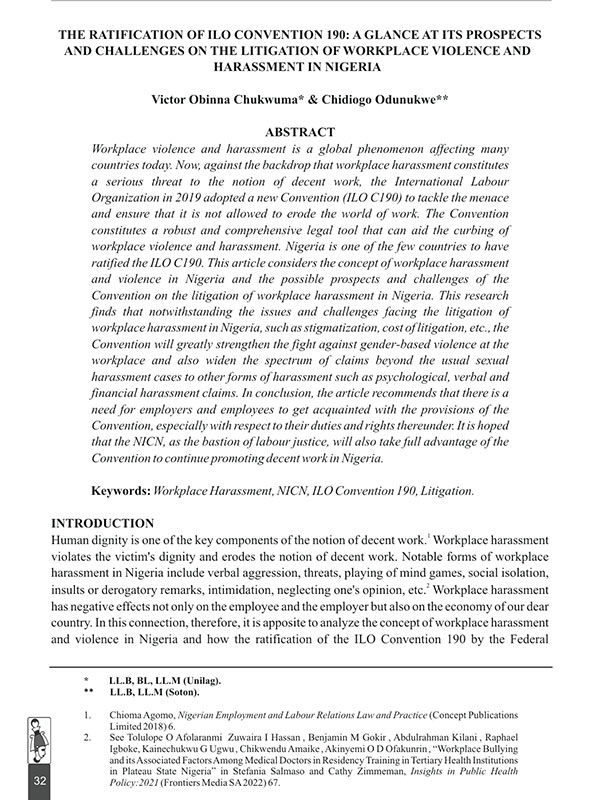
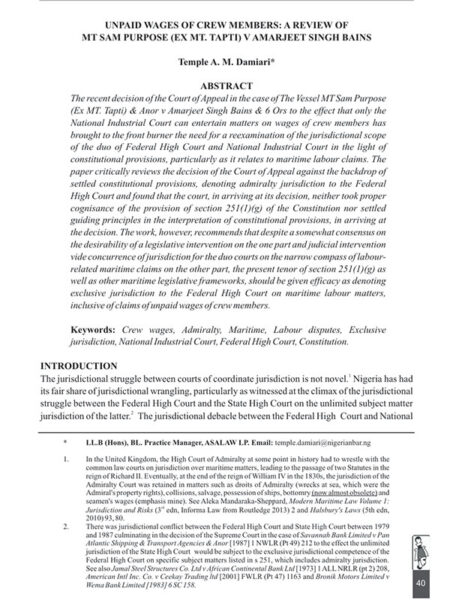
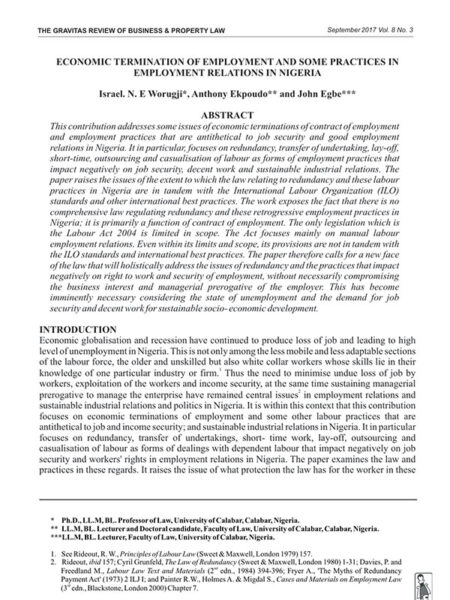
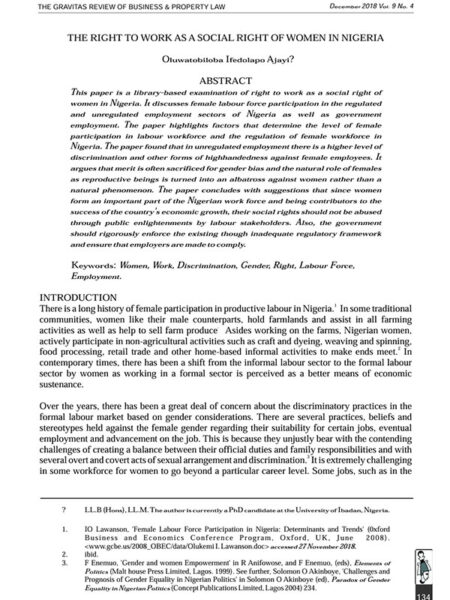
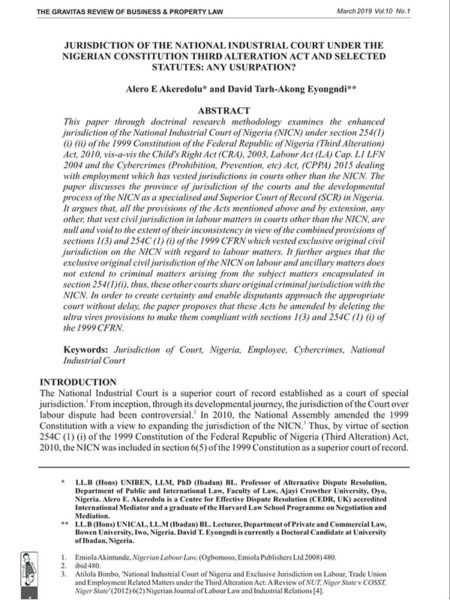


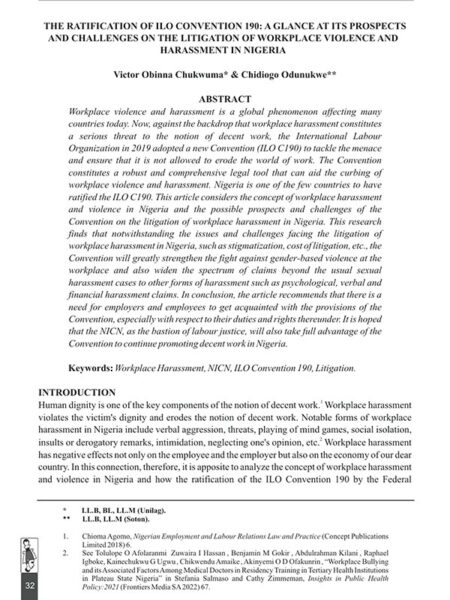
Reviews
There are no reviews yet.